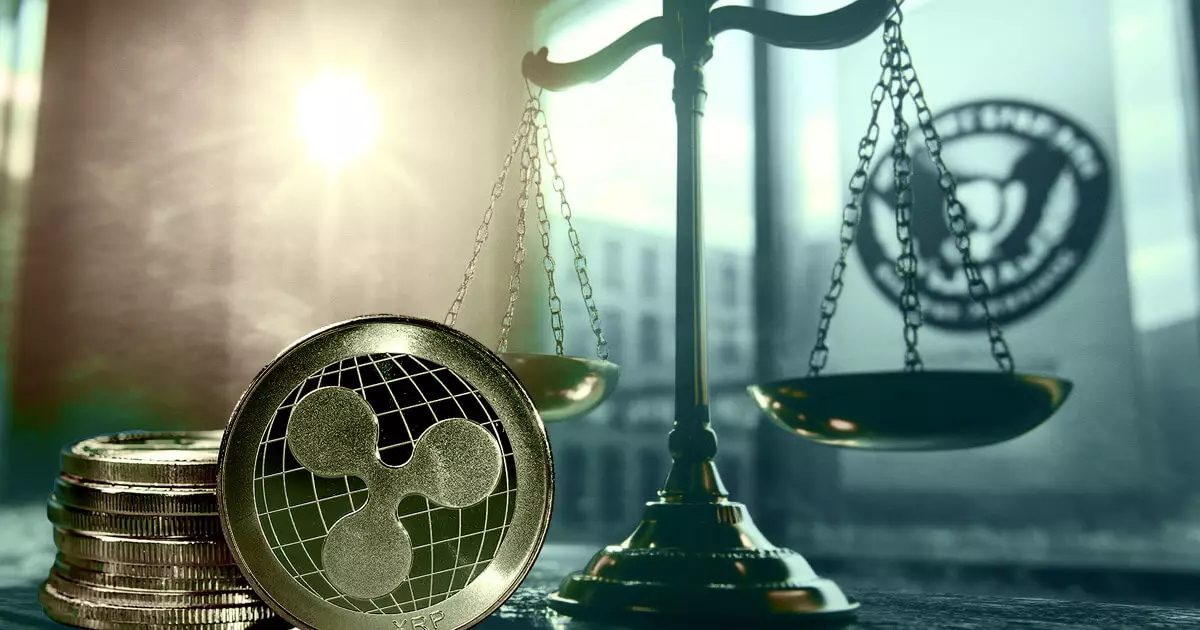In the complex landscape of cryptocurrency regulation, few cases have generated as much interest and speculation as the legal battle between Ripple Labs and the U.S. Securities and Exchange Commission (SEC). Following Judge Analisa Torres’s ruling last year, which granted significant but not total victory to Ripple, the SEC has decided to challenge certain aspects of that decision. The recent filing of a Civil Appeal Pre-argument statement (Form C) marks a pivotal moment, reopening debates surrounding the classification of digital assets and their regulatory treatment in the U.S.
The Court’s Previous Ruling: A Close Examination
Judge Torres’s verdict provided a dual narrative: on one hand, it clarified that Ripple’s sales of XRP to retail investors via digital asset exchanges did not constitute a violation of U.S. securities laws; on the other, it ruled that sales to institutional investors did breach these regulations. This bifurcation of the ruling is crucial for understanding the SEC’s current strategy, which appears to focus on the portions of the earlier decision that still offer potential leverage against Ripple. The distinction between retail and institutional sales is significant in shaping the way cryptocurrencies may be regulated moving forward.
The SEC’s decision to appeal has stirred significant reactions within the cryptocurrency community. Central to its appeal is the request for a “de novo” review, which allows the appellate court to reassess the legal questions without relying on the lower court’s judgment. This approach could lead to drastically different interpretations of law, especially in areas surrounding Ripple’s programmatic sales of XRP and the alleged involvement of Ripple executives Brad Garlinghouse and Chris Larsen. Notably, the SEC accuses these individuals of aiding XRP sales on digital trading platforms, which could set a precedent for how executive accountability is addressed in the cryptocurrency space.
What’s At Stake? Ripple’s Strategic Response
Ripple’s Chief Legal Officer, Stuart Alderoty, did not shy away from stressing that the SEC’s appeal does not contest the core issue still standing from the previous ruling: the assertion that XRP is not classified as a security. This “law of the land” standpoint from Ripple positions the company not just defensively, but also offensively with plans to file its cross-appeal. It underscores the importance of maintaining that particular legal interpretation, as it could protect other cryptocurrencies from falling under the weighty scrutiny of securities laws.
The stakes in this appeal extend beyond Ripple and touch upon larger questions regarding the future of cryptocurrency regulation in the U.S. If the SEC successfully overturns even parts of the previous ruling, it could potentially activate a chain reaction that leads to intensified scrutiny across the market. This could create a chilling effect for innovation within the crypto sector, where many projects rely on similar financial models to Ripple’s.
As the SEC’s appeal unfolds, its ramifications echo throughout the industry. Ripple’s ongoing legal challenges highlight existing gray areas in the regulatory framework, fueling ongoing debates about compliance, investor protection, and market integrity. Industry participants are vigilantly observing the case, as its outcomes could establish critical precedents that may redefine operational parameters for cryptocurrency companies. A favorable ruling for the SEC would embolden regulators, while a win for Ripple could bolster a pro-innovation climate.
In the broader scope, the case represents a critical test of how traditional financial regulations are adapted—or not adapted—to new technological realities. The dichotomy between the existing regulatory frameworks and the evolving nature of digital assets is on trial, presenting an opportunity for regulators to either catch up with innovation or place unnecessary constraints on a burgeoning industry.
The legal clash between Ripple and the SEC is an unfolding story that encapsulates both the challenges and opportunities within the cryptocurrency sector. As each party braces for the implications of the appeal process, stakeholders from all corners of the digital economy are left watching closely. What emerges from this legal battle could shape the regulatory landscape for years to come, influencing the very future of how digital assets are classified and treated by law. As the saga continues, both Ripple and the SEC have positioned themselves for a critical confrontation that could either reaffirm or upend the foundations of how cryptocurrencies are perceived—both legally and economically—within the United States.


Leave a Reply